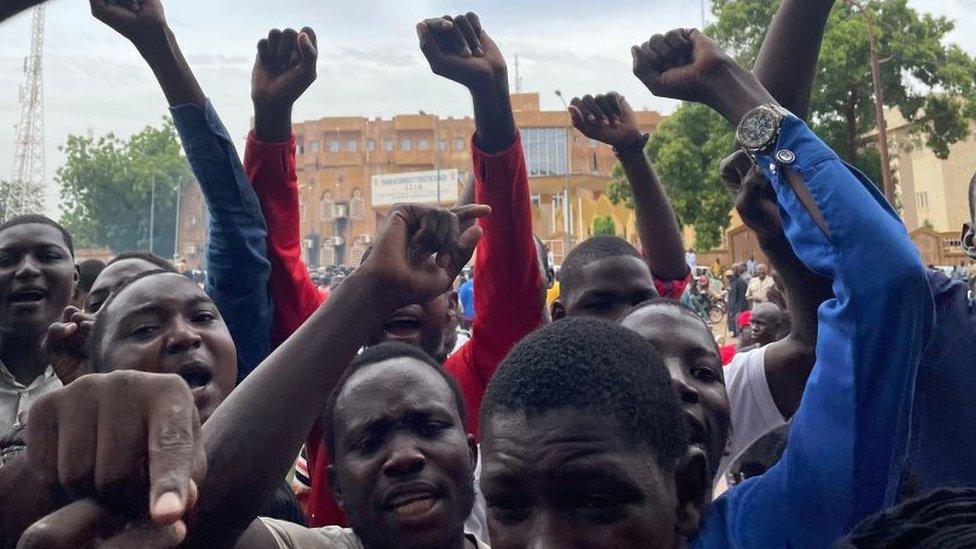Niger junta gives French envoy 48 hours to leave
- Published
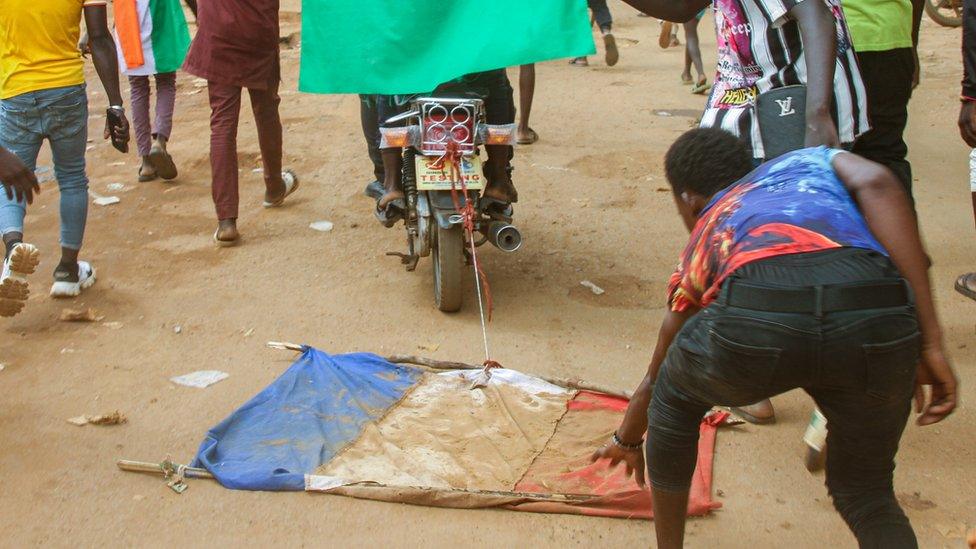
A number of anti-French rallies have been held in Niger in recent weeks
Niger's coup leaders have given the French ambassador 48 hours to leave the country as bilateral ties continue to deteriorate rapidly.
The junta said Sylvain Itte had refused to respond to an invitation to meet Niger's foreign minister.
France, a former colonial power, said the "putschists have no authority" to order such an expulsion.
Paris opposes July's coup, saying that ousted President Mohammed Bazoum must be returned to office.
Friday's announcement was made by Niger's foreign minister installed by the junta.
This follows a series of statements and demonstrations hostile towards France.
The French foreign ministry responded by saying that it had "taken note of the putschists", the AFP news agency reported.
"The putschists do not have the authority to make this request, the ambassador's approval coming solely from the legitimate elected Nigerien authorities," the ministry added.
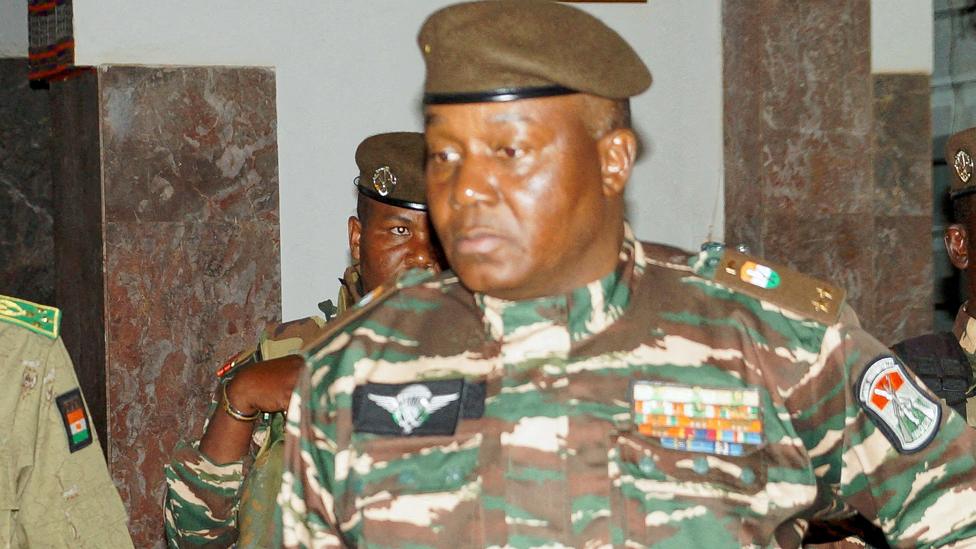
The junta leader says Niger does not want a war but will defend itself
Gen Abdourahamane Tchiani, Niger's coup leader, last week pledged to return the West African nation to civilian rule within three years.
He made the announcement after meeting mediators from the West African regional bloc Ecowas in the capital, Niamey.
Ecowas has threatened military action to reverse last month's overthrow of President Bazoum if talks fail.
The junta head said that Niger did not want a war, but would defend itself against any foreign intervention.
"If an attack were to be undertaken against us, it will not be the walk in the park some people seem to think," he warned.
Gen Tchiani also reiterated criticism of what he called the "illegal and inhumane" sanctions imposed by Ecowas on the landlocked impoverished country.
This has included cutting electricity, resulting in blackouts in Niamey and other major cities, as well as blocking crucial imports.
Lorry drivers have been stuck for weeks waiting to bring in supplies, forcing up food prices.
Ecowas rejected the three-year timeframe after talks on Sunday.
"Ecowas is not accepting any prolonged transition again in the region. They just have to get ready to hand over in the shortest possible time," Abdel-Fatau Musah, the bloc's commissioner for political affairs, peace and security, told the BBC.
He said the "military aspect is very much on".
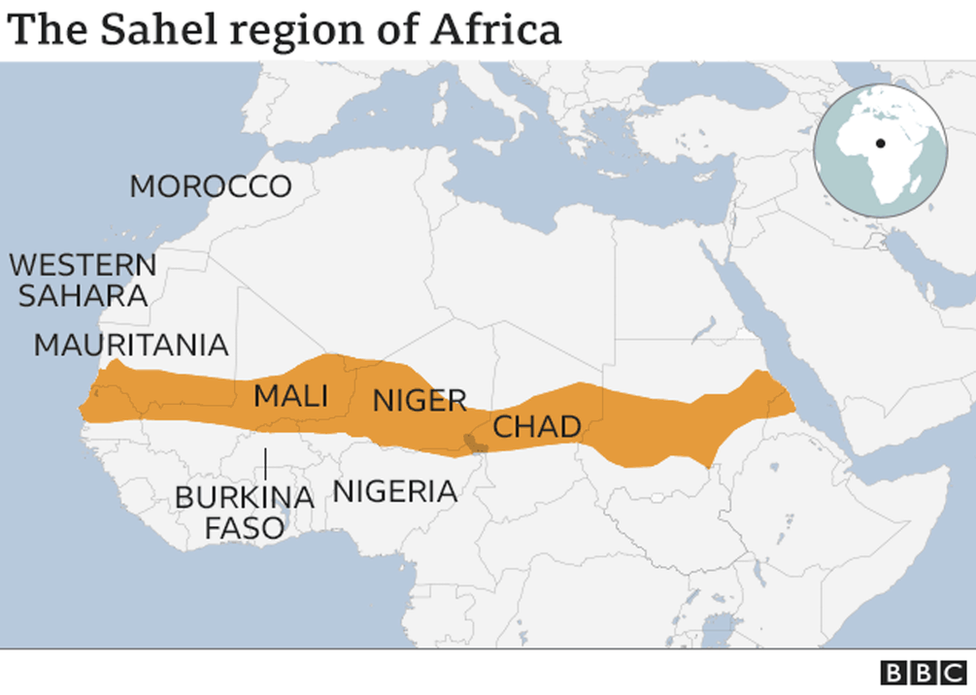
Regional efforts to reverse the coup have been backed by the US and France, which both have military bases in Niger. These bases are part of efforts to tackle jihadist groups in the wider Sahel region.
The junta leader, who headed the presidential guard before seizing power on 26 July, said military intervention could worsen the Islamist insurgencies linked to al-Qaeda and the Islamic State group.
The coup mirrors similar recent takeovers in neighbouring Burkina Faso and Mali.
And the influence of Russia in the wider Sahel region is also growing through its mercenary group Wagner.
- Published20 August 2023
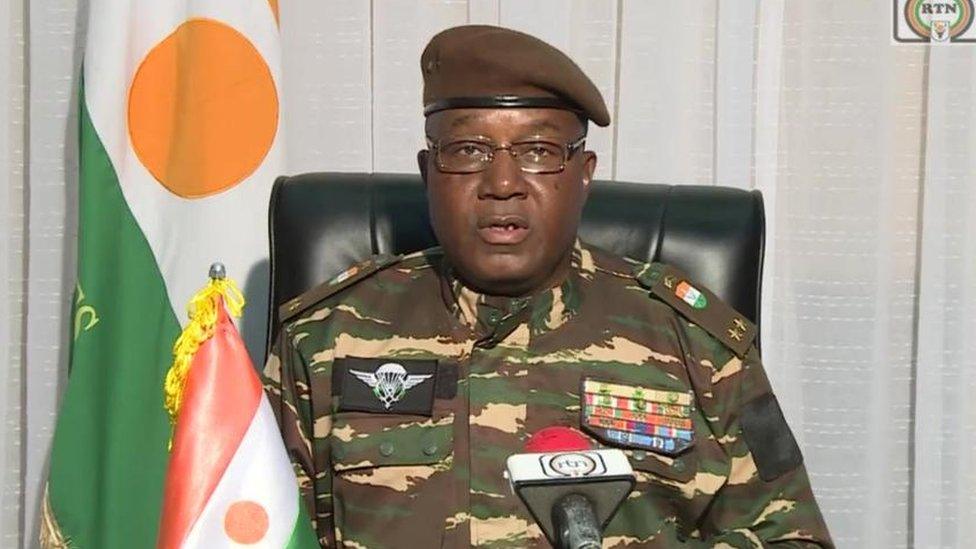
- Published10 August 2023
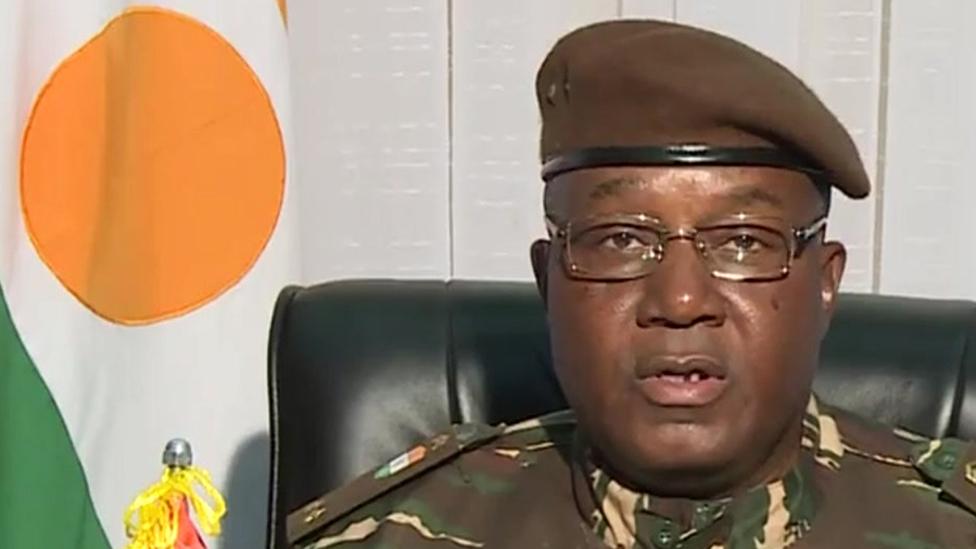
- Published12 August 2023
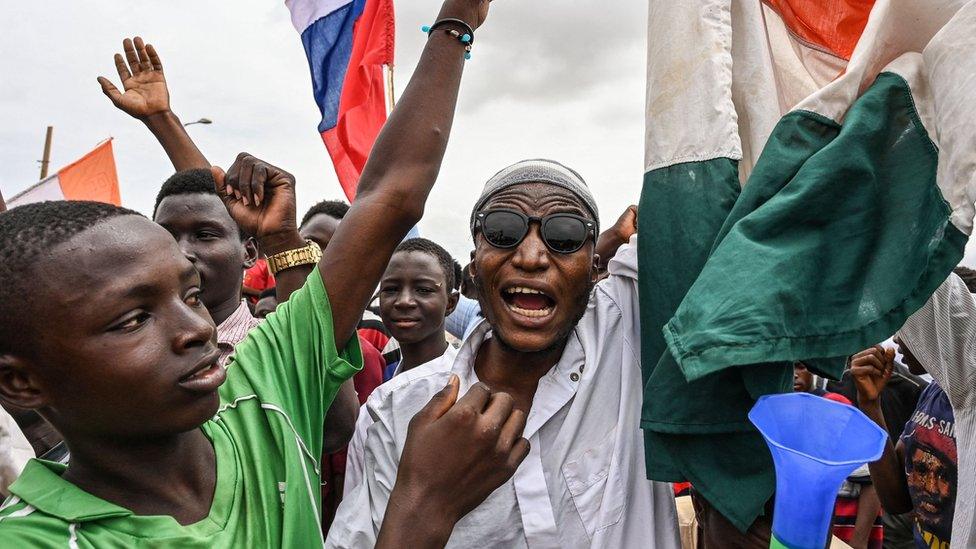
- Published28 July 2023
